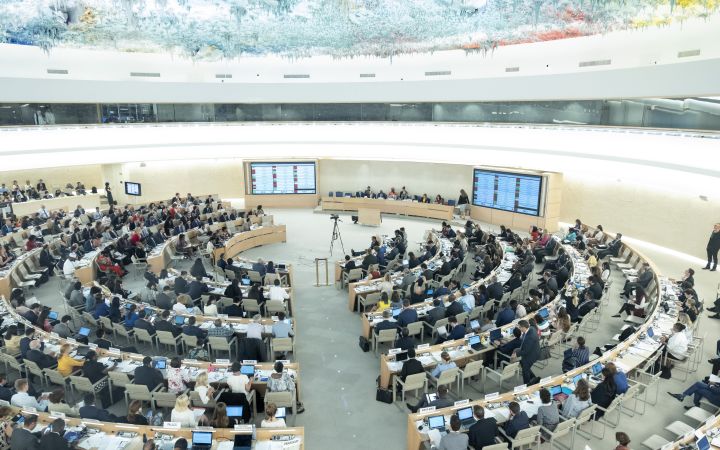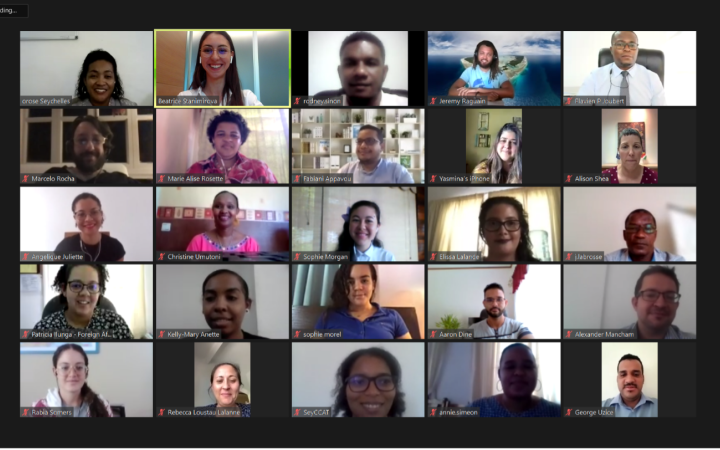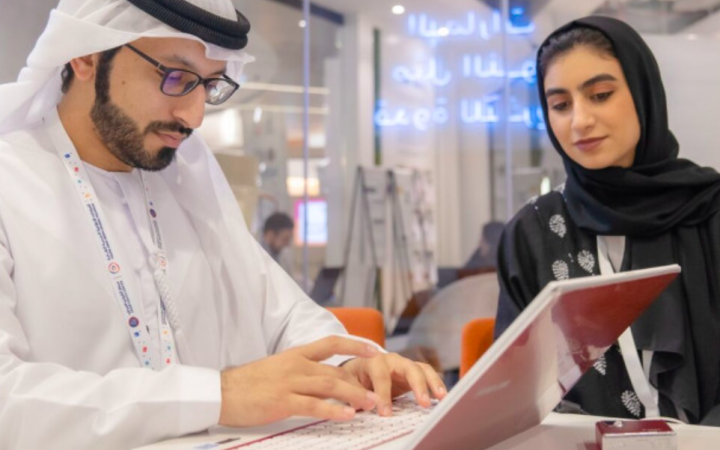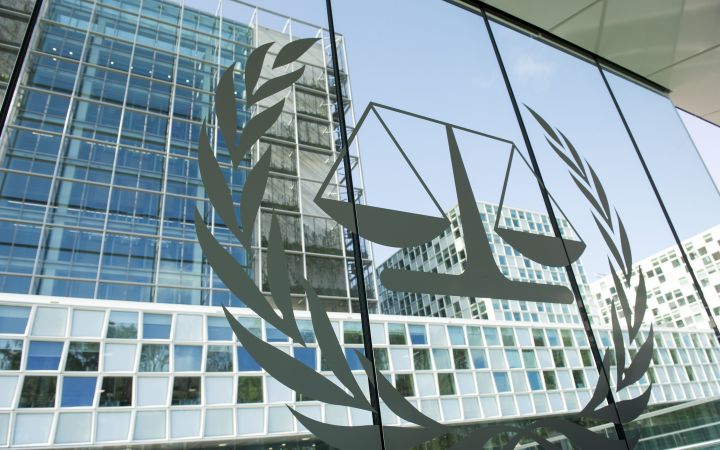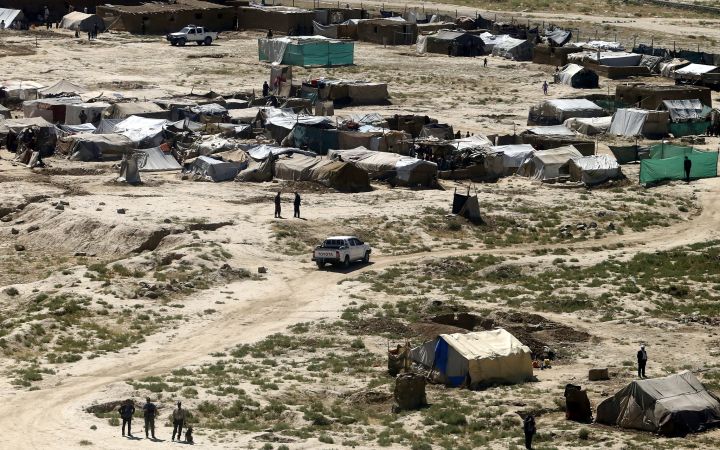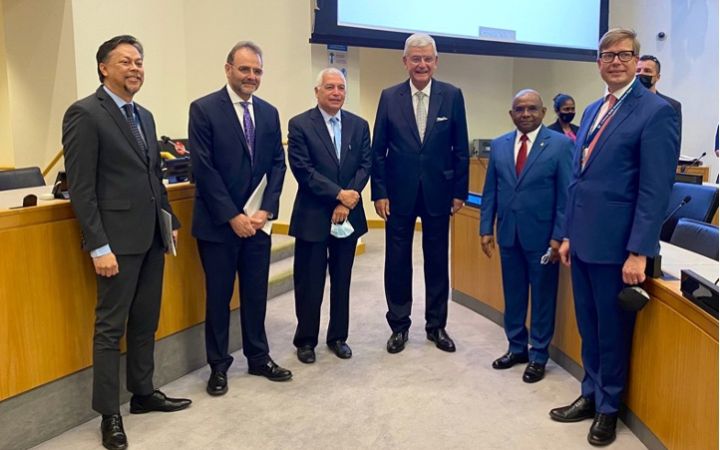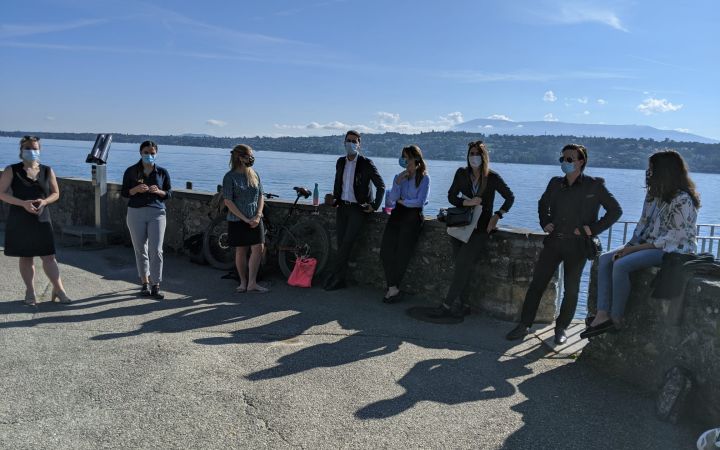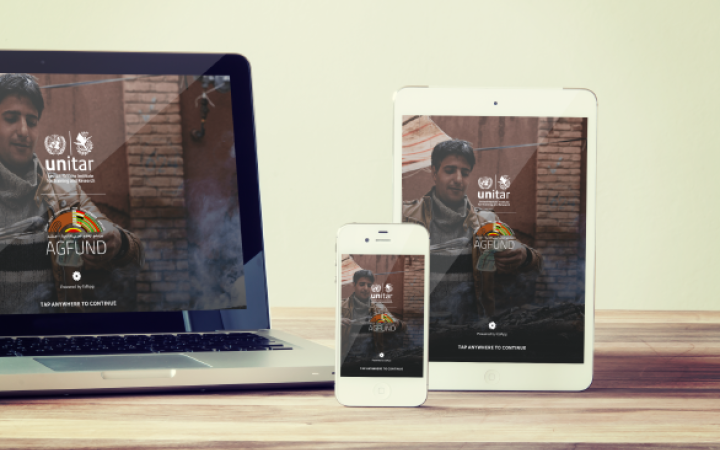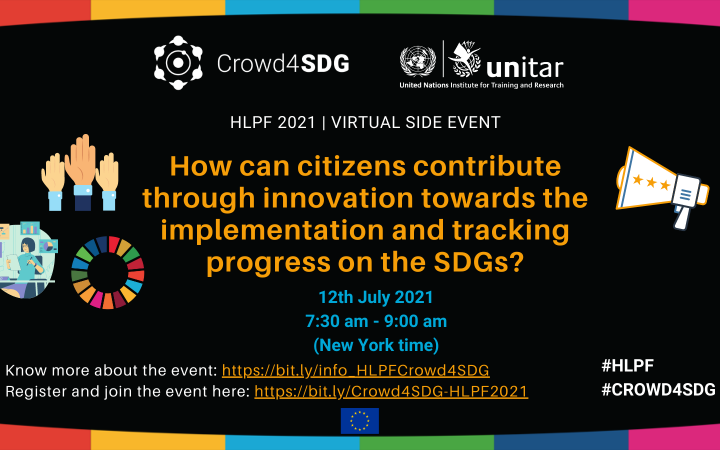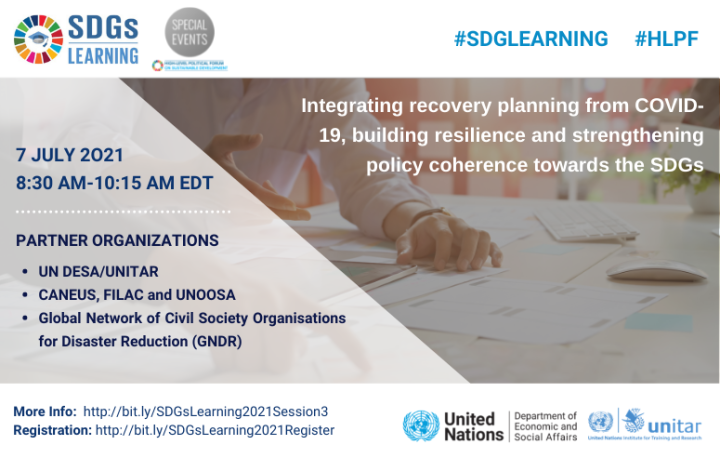Displaying 91 - 100 of 164
The Online Diploma in Multilateral Diplomacy offers a unique opportunity for both students wanting to pursue a career in international relations, and professionals working in international and regional organizations as well as governmental and non-governmental institutions, to expand their knowledge on international affairs and strengthen their capacities in the field of multilateral diplomacy.
7 September 2021, Geneva, Switzerland – The current global pandemic highlighted how training to build resilience is more critical than ever. For the past 18 months, the Covid-19 crisis and its consequences have been the primary concern of world leaders and government officials. However, this poses the risk of overshadowing yet another existential challenge, which requires immediate attention and action.
In November, the Conference of the Parties (COP) to the United Nations Framework Convention on Climate Change (UNFCCC) will convene in Glasgow. In light of this, UNITAR, the UN Resident Coordinator's Office for Mauritius and Seychelles, the Group of 77, and China implemented a series of e-Workshops on Climate Change Diplomacy to support the educational development of delegates and representatives. These training sessions aimed to build the capacities of government officers on climate change negotiations and provide them with essential knowledge for the upcoming COP26. The design of the workshops enabled high-level officials to extensively develop their knowledge, competency, and train their negotiation skills.
To lead the discussion on the challenges of COP26, UNITAR selected Mr. Marcelo Rocha, an agronomist, land use expert, and lead coordinating author at the IPCC, and Ms. Ana Kleymeyer, former Senior Advisor to the Argentinian Secretary of the Environment. The trainers highlighted the paramount agreements in their history, as well as the terminologies and concepts of climate finance that are beneficial to Small Island Developing States (SIDS), such as Mauritius and Seychelles, in addition to providing background information on the history of COP and UNFCCC.
In November, the Conference of the Parties (COP) to the United Nations Framework Convention on Climate Change (UNFCCC) will convene in Glasgow. In light of this, UNITAR, the UN Resident Coordinator's Office for Mauritius and Seychelles, the Group of 77, and China implemented a series of e-Workshops on Climate Change Diplomacy to support the educational development of delegates and representatives. These training sessions aimed to build the capacities of government officers on climate change negotiations and provide them with essential knowledge for the upcoming COP26. The design of the workshops enabled high-level officials to extensively develop their knowledge, competency, and train their negotiation skills.
To lead the discussion on the challenges of COP26, UNITAR selected Mr. Marcelo Rocha, an agronomist, land use expert, and lead coordinating author at the IPCC, and Ms. Ana Kleymeyer, former Senior Advisor to the Argentinian Secretary of the Environment. The trainers highlighted the paramount agreements in their history, as well as the terminologies and concepts of climate finance that are beneficial to Small Island Developing States (SIDS), such as Mauritius and Seychelles, in addition to providing background information on the history of COP and UNFCCC.
29-31 August 2021, Abu Dhabi, UAE – The United Nations Institute for Training and Research (UNITAR) successfully hosted a three-day online workshop on the topics "Assertiveness & Influencing" and "Public & Digital Diplomacy." This workshop was conducted in partnership with the Arab Youth Center’s “Young Arab Diplomatic Leaders” program in Abu Dhabi.
The program aims to familiarize young Arab figures with diplomatic culture, helping them engage in international discussions about topics like the environment, economy, and media in the convergence and the rapid growth witnessed by the Arab World.
UNITAR was pleased to virtually welcome 42 junior-mid career diplomats from Bahrain, Jordan, Saudi Arabia, the UAE, Egypt and Iraq.
The program aims to familiarize young Arab figures with diplomatic culture, helping them engage in international discussions about topics like the environment, economy, and media in the convergence and the rapid growth witnessed by the Arab World.
UNITAR was pleased to virtually welcome 42 junior-mid career diplomats from Bahrain, Jordan, Saudi Arabia, the UAE, Egypt and Iraq.
International Criminal Law has come a long way since the Nuremberg trials and the entry into force of the Rome statute almost twenty years ago. While these developments have helped to satisfy the demand for justice around the word, they have also fueled debates about the state of international law, international criminal justice, and accountability. The Executive Diploma on International Criminal Law and Transitional Justice will provide unique access to information, perspectives, updates and analysis on accountability mechanisms for both those seeking to develop a working background on the topics as well as those already thoroughly versed in their dynamics.
September 2021 - The world is still in shock about how the military disengagement of the West and the implosion of the Afghan government led to the Taliban victory, taking full control over almost the entire territory of Afghanistan within days. Many civilian endeavours of international assistance operating under a military umbrella ceased their operations.
7 September 2021, New York, USA – The United Nations Institute for Training and Research (UNITAR) New York Office successfully implemented its two-day training, the “Transition Workshop for the 76th Office of the President of the General Assembly (OPGA),” in partnership with the Permanent Missions of Ecuador, Finland, and Malaysia. This workshop was organized to support the Office of the President of the General Assembly in its transition between the 75th and 76th OPGA, and to specifically facilitate opportunities for existing, former, and incoming OPGA staff to share experiences and best practices for a successful transition. This workshop marked UNITAR NYO’s first in-person training workshop since the beginning of the COVID-19 pandemic and was attended by more than 30 delegates, following social distancing measures.
11 August 2021, Geneva, Switzerland - Despite the many challenges brought forth in the past months, the team of the Multilateral Diplomacy Programme Unit (MDPU) has grown, quasi-doubling its size compared to pre-pandemic times. Here is how they managed to keep connected with each other!
UNITAR and AGFUND’s unique microfinance training program has upskilled and inspired more than 1,200 people around the world to eradicate poverty and inequality through microfinance and financial inclusion.
12 July 2021, Geneva, Switzerland - Achieving SDGs is the responsibility of not only governments but of everyone else – every citizen. There are several ways to do so. Support with data collection and monitoring of progress on SDG implementation is one of them. National Statistical Offices (NSO) have been experimenting with different new sources of data to bridge the data gaps to be able to track progress on the SDGs. This side event, on 12 July 2021, on the sidelines of the 2021 High-level Political Forum on Sustainable Development (HLPF) aimed to demonstrate how exactly citizens can make their contributions through innovative solutions and how such citizen science or citizen-generated data can be of use to the National Statistical Offices (NSOs). The event was organized by the United Nations Institute for Training and Research (UNITAR) together with members of the Crowd4SDG Consortium, University of Geneva, Politecnico di Milano, CERN, Spanish National Research Council, and Université de Paris.
7 July 2021, Geneva, Switzerland - On the 7th of July 2021, UNDESA and UNITAR, jointly with CANEUS, FILAC, UNOOSA and GNDR, organized a session entitled “Integrating recovery planning from COVID-19, building resilience and strengthening policy coherence towards the SDGs” as part of the SDGs Learning, Training & Practice Center’s learning sessions on the sidelines of the 2021 High-level Political Forum on Sustainable Development (HLPF). It was an opportunity to present the new UNDESA-UNITAR course “Integrated Recovery Planning and Policy Coherence Towards the SDGs” to policy-makers and other stakeholders.


